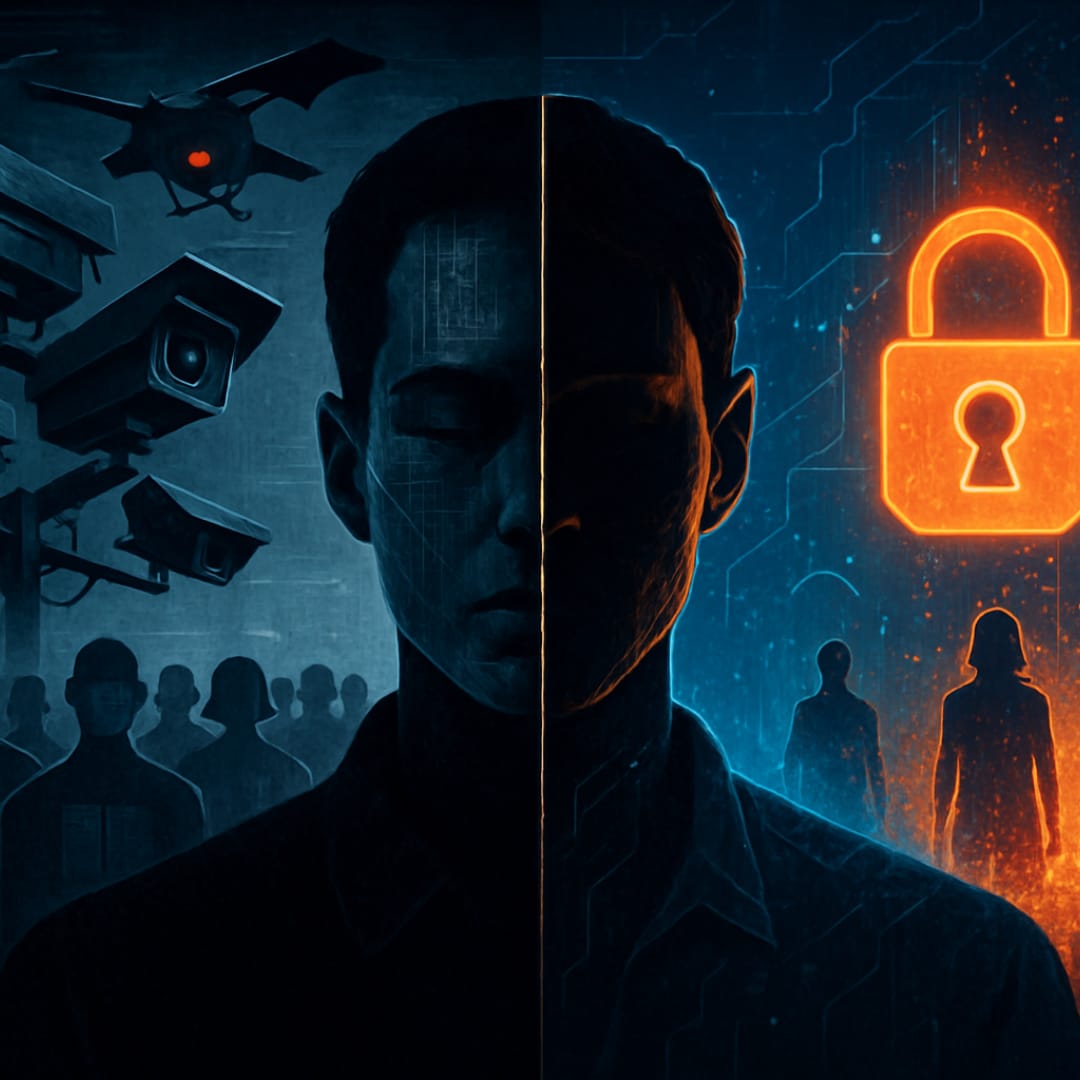Surveillance vs Privacy Rights: The Battle for Human Dignity in the Digital Sphere.

Surveillance vs Privacy Rights: The Battle for Human Dignity in the Digital Sphere.
Beyond governments, surveillance capitalism, a very recent term coined by Shoshana Zuboff in (2019), describes how private tech companies extract and commodify user data on purpose and for profit. Every click, like, or GPS ping adds to an emerging digital profile that can be bought, sold, and sadly weaponized for advertising, for behavioral control and political manipulation.
Unlike state surveillance, corporate surveillance is often hidden by other tools called user agreements and “personalized experiences.” So, app developers, media companies and smart device manufacturers collect sensitive personal information, sometimes more hugely than just intelligence agencies. This issue is more complicated in countries like Pakistan, where “digital privacy rights” are rarely protected, and users don’t know the full scope of data collection.
Such data collection of human life violates the right to privacy in cyberspace, existing in Article 12 of the Universal Declaration of Human Rights. It also affects marginalized communities disproportionately, who are more vulnerable to digital surveillance such as profiling or other exploitation.
Criminalization of privacy in the name of Facial Recognition.
Many scholars and digital activists have highlighted and named these new technologies as the most controversial developments in surveillance as the rise of facial recognition technologies. The use of these technologies in airports, public transportation systems, and urban security grids, facial recognition promises security and efficiency. Although, number of studies have shown its susceptibility to bias, specifically against women and ethnic minorities, and its potential misuse by authoritarian regimes to track down dissent and journalists.
At the same time, law enforcement agencies around the world have pressed for backdoor access to encrypted platforms, arguing that encryption helps criminals evade justice. But weakening encryption would not only expose citizens to cyberattacks, it would also destroy civil liberties in the digital age. As the Electronic Frontier Foundation notes in 2020 that, “there is no such thing as a secure backdoor.”
National security balance cannot be achieved by any member or state by criminalizing privacy tools. Other than, it must involve developing legal and ethical boundaries around surveillance and ensuring that privacy remains a “default right”, not a privilege granted by the state or any corporations.
Global Inconsistency and legal Vacuum
Despite the necessity of such issues, there is no universal legal framework that adequately regulates global surveillance laws. While the European Union’s General Data Protection Regulation (GDPR) has set a global benchmark for data rights, still some countries still lack comprehensive digital privacy protections. In Pakistan, the Personal Data Protection Bill remains stuck in legislative limbo, while intelligence agencies continue surveillance operations without judicial review.
International law often struggles to hold transnational corporations accountable. Data collected in one country is often processed in another and stored in a third, placing it beyond the reach of any single jurisdiction. This fragmented legal landscape allows powerful actors to exploit weaker zones, while ordinary citizens are left with limited recourse.
lastly, the lack of transparency surrounding surveillance and control programs often prevents public scrutiny. Without oversight mechanisms, these systems can, and often do, violate data collection and human rights principles with great impunity.
The Fight and Public Awareness
Despite the weak picture, resistance to constantly unchecked surveillance is growing. Civil society organizations, digital rights activists, and whistleblowers continue to challenge such vile practices. Campaigns promoting digital literacy, privacy by design, and data sovereignty are gaining ground, particularly in regions with weak institutions, Pakistan as a crucial example.
There are also encrypted messaging platforms like Signal and ProtonMail are being widely adopted. Several Lawsuits have been filed against facial recognition use by police forces. And courts in various countries have begun to rule against unlawful surveillance practices.
But these are only early steps. The broader cultural shift, recognizing privacy as a fundamental human right in the digital age, still requires mass public support and a great political will.
Conclusion
In the unfolding digital era, surveillance vs privacy is not just a technical debate, it is a moral and political choice. It is the choice between empowering individuals or consolidating power in the hands of a few. Between protecting civil liberties or enabling a world of digital authoritarianism.
To preserve human dignity, we must resist the normalization of surveillance. Governments must create strong legal frameworks with clear checks and balances. Corporations must be held accountable for how they handle user data. And citizens must demand transparency, encryption, and the right to be left alone. Because privacy is not about hiding, it is about being free.



